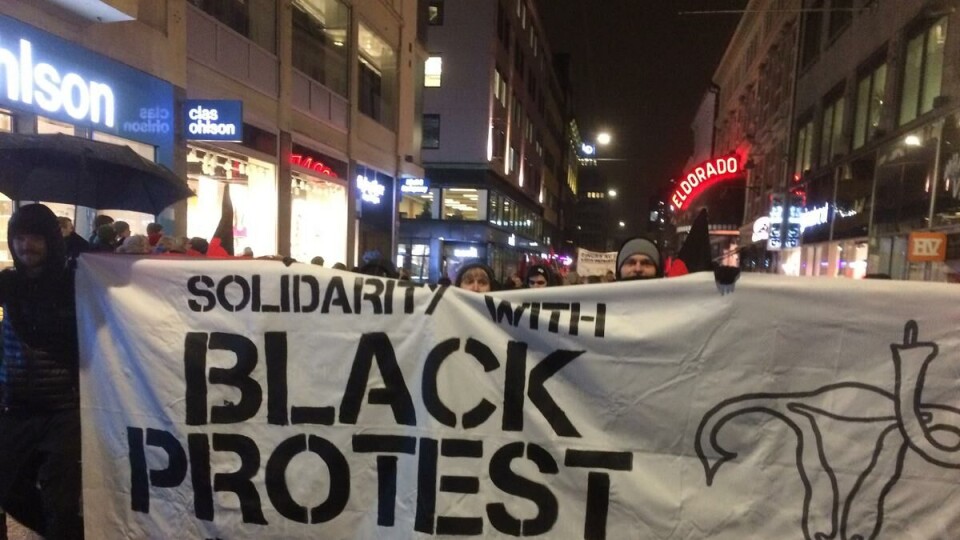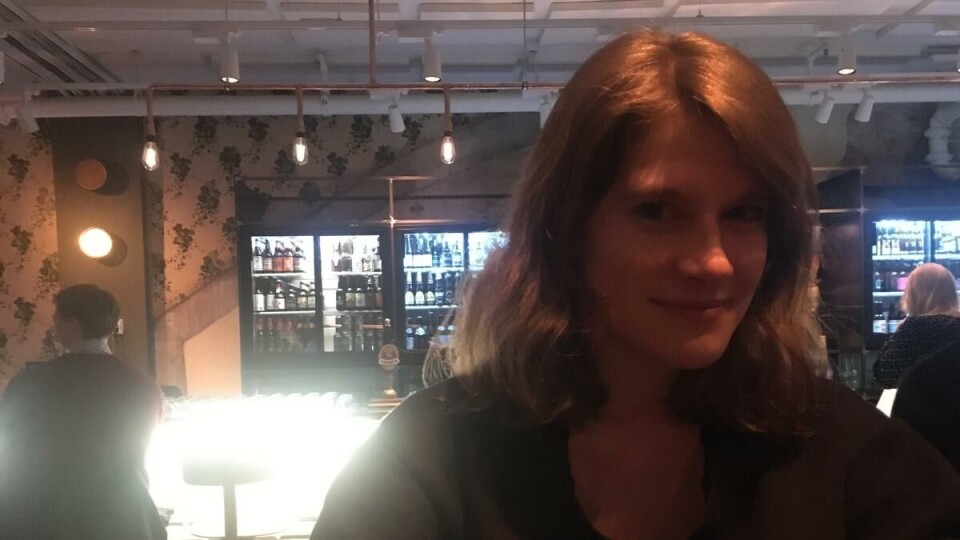
The dark state of Polish abortion
The Polish right to abortion is under threat. Last week, protestors like Ewa, an exchange student at UiO, took to the streets of Oslo in solidarity.
Women in Poland continue their struggle for the right to legal abortion. They organize under the name «black protest» to tell the conservative government it cannot further erode their rights. On International Women’s Day, the black protest reached Oslo. Inter Universitas takes a closer look at the realities of Polish abortion.
Polish Tulip Day
Associating 8 March with the political agenda of women’s rights is not common in Poland. It’s rather seen as a day of courtesy displayed by men toward women. Boys give tulips to girls in their class, to their teachers, mothers, sisters. Female co-workers are presented with a tulip when they show up to work.
Some still link International Women’s Day to communism. The very memory of mandatory March 8 celebrations can still wrinkle elderly noses. Today, the biggest feminist march called «Manifa» in Warsaw gathers around 4,000 people. That isn’t many. With the black protest of 2016 though, things were different.
A fragile compromise
Since 1993, abortion has been legal under only three circumstances: rape, danger to mother’s life or health, or when the fetus is malformed. This legislation is called «the abortion compromise» and no government before dared touch it, despite both a Catholic and liberal lobby. The new government is different. The parliament proceeded with working on a total ban, which included penalties.
If I were to get an abortion, I wouldn’t count on doing it legally. It is much less humiliating and much less stressful to order the pills online and do it yourself. As scary as it sounds.
Black is the new pink
The threat triggered a huge reaction the politicians did not anticipate. Even on the morning of 3 October 2016, the day of the main demonstrations, the Minister of Foreign Affairs, Witold Waszczykowski, commented on women’s initiative with a condescending «Let them play.» Hours later, nearly one million people took to the streets joining the black protest throughout the country that day. Many women went on strike. Selfies in black populated social media feeds. Social mobilization of this magnitude exceeded everyone’s expectations and left the politicians no choice. Three days later, the bill was dropped.
Polish activists in Oslo
This year, the black protest returned on International Women’s Day. At Youngstorget, a solidarity action took place. Polish activists managed to spontaneously join the march. One of them was Ewa Lugowska, a sociology major, currently on exchange at the University of Oslo.

«I attended the Manifa protest for the first time in 2012. Ever since the black protest started about two years ago, it has become much more common to take part in events like that,» she said. «In Wroclaw, the Black Protest demonstration was the biggest one since the communist times, about 20,000 people. Considering our poor social involvement, that was a lot.»
Knowing the realities of Polish legal abortion, she doesn’t recommend it.
«Even if there is a legal ground to allow for the abortion, it rarely happens in the end. Women are bothered by pro-life organizations. Often the time needed to get the paper work in place exceeds the first 12 weeks of pregnancy, when abortion is allowed. Anyway, if I were to get an abortion, I wouldn’t count on doing it legally. It is much less humiliating and much less stressful to order the pills online and do it yourself. As scary as it sounds.»
She says that even though being in a need of abortion in Poland is no picnic, you can still get help. «Aunt Basia» for example is an NGO based in Berlin that helps Polish women undergo the procedure in Germany.
«Not everyone knows what to do. Women are scared even to take the morning-after pill, which by the way requires a prescription from a gynecologist. I know where to order the pills, but many who don’t, will still try to abort the unwanted pregnancy.»
She thinks that the total ban is not a threat for now, thanks to the black protest.
«It contributed wonderfully. I wish people in Poland would see abortion as a normal medical procedure. All that shaming, stigmatizing, alienation, stress and risk of it is completely unnecessary. The existing, strict law is not being practiced and needs to be changed. That is why I was freezing in the march today.»






























